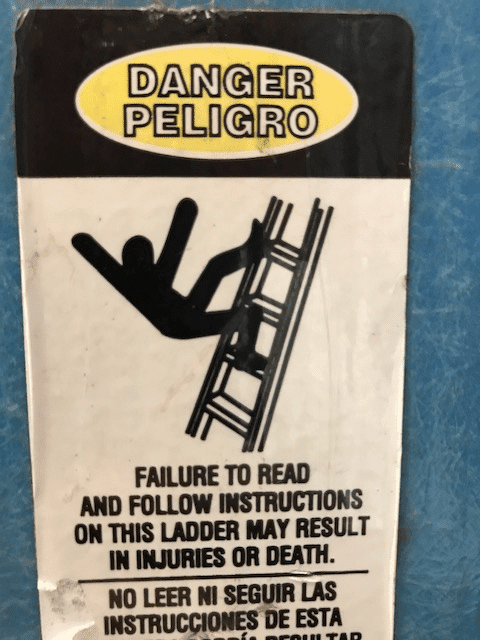
Do I Qualify For Workers’ Comp in NC?
In a typical Workers’ Comp case, you will qualify for Workers’ Comp in NC if your case meets these requirements:
You must be employed
Your employer must carry Workers’ Comp insurance
You must have sustained a work-related injury or illness, and
You must meet North Carolina’s deadlines for reporting the injury and filing a workers’ comp claim.
After promptly notifying your supervisor about your desire to file for workers’ comp, a form 18 should be completed and filed within 30 days. The employer and/or insurance carrier should receive a copy while you keep one for yourself. This form must be filed within two years of the injury taking place. All of these components are critical for you to qualify for Worker’s Comp. You can hire a Workers’ Comp lawyer at any time during the process of your claim; however, it is best to involve an attorney earlier rather than later, to help preserve your rights under your case and to help build your case as time goes by.
Common On The Job Injuries that Qualify for Workers’ Comp
Getting hurt on the job is never a good outcome. Unfortunately, some injuries do not qualify for Worker’s Comp in NC. Generally speaking, injuries that occur in the workplace or while doing something on behalf of your employer, are qualifying injuries for Workers’ Comp in NC. Other injuries include those sustained while operating a company vehicle or traveling as a passenger in a company vehicle. For example, delivering mail, or traveling to a client destination. If you are injured during a company sponsored event, you may have the option of choosing between Workers’ Comp and Personal Injury. Your choices will depend upon the facts which led to the injuries. Your injury attorney can help you understand the factors which trigger pursuing Workers’ Comp vs. Personal Injury. Lastly, while you may have a claim for mental injuries such as anxiety or depression, you will typically need a physical connection to those injuries in order to claim them. If you claim PTSD as part of your injury, and you can tie the PTSD to a physical injury you sustained on the job, you are well on your way to making the necessary connection.
Which Employers Must Carry Workers’ Comp Insurance?
Any employer in North Carolina who employs three or more individuals must carry Workers’ Comp insurance. Often, a Workers’ Comp lawyer will devote resources to establishing that an employer actually has three or more employees. In ever-changing work structures, there are many times that an employer employs only independent contractors. While it is permissible to employ an independent contractor, an employe cannot use the status as a way to avoid Workers’ Comp insurance or paying a Workers’ Comp claim. Your attorney can help to successfully recover against the employer in these situations.
There are some allowable exceptions to the requirement to carry Worker’s Comp for an employee whether they are in independent contractor or not. Housekeepers and/or domestic servants that are directly employed by the household, certain farm laborers, and certain railroad employees are among them. Employers who fail to carry workers’ compensation insurance may face stiff financial penalties, be charged with a misdemeanor, be charged with a felony, and be imprisoned. If your employer fails to carry required workers’ compensation insurance, you should report the lack of workers’ compensation insurance or approved self-insurance to the NCIC Fraud Section and, if injured, should file a form 18 and form 33.
Coverage For Permanent Partial Disability
Permanent partial disability cases are some of the most common Workers’ Comp cases. The disability can originate from either a work related injury or an occupational disease. Permanent partial disability means that there is a permanent impairment which causes an employee to be unable to complete certain work related tasks to the best of their ability. This disability can be a physical impairment caused by a work related accident, or even a mental condition caused by the job. For example, post traumatic stress disorder. Physical examples of permanent partial disabilities include losing a limb, carpal tunnel syndrome, loss of vision in one eye (both eyes would be considered total disability), nerve damage, or a knee injury that causes walking or standing for prolonged amounts of time to be painful.
Workers’ Comp claimants routinely find themselves in a battle between their doctor and the Workers’ Comp doctor, over the percentage disability and whether it will be permanent or temporary. Good Worker’s Comp claims are won and lost over these distinctions and your lawyer will assist with building a case for the worst case scenario for your injury, to combat the insurance lawyer’s attempt to minimize your injury and the amount you should be compensated for it.
Lost Wages Claims
Lost wages are compensable in Workers’ Comp; however, even if you qualify for Worker’s Comp in NC, only a percentage of your lost wages will be paid under a Workers’ Comp claim. While this is true, when combined with a permanent partial disability, the total compensation is meant to compensate you for the injury and the financial loss you have suffered and will continue to suffer over time.
Speak With A Worker’s Comp Lawyer Today
If you would like to speak with an attorney about your Workers’ Comp or personal injury case, we’re here to help. The call is free and you will come away with a much better understanding of your options. You can reach us at 704.749.7747 or click to request a FREE CASE EVALUATION, and we will be in touch shortly.
Further Reading
If this article was helpful, you may find other helpful articles on our Personal Injury Blog. Thank you for visiting the website—we hope it has been helpful.

